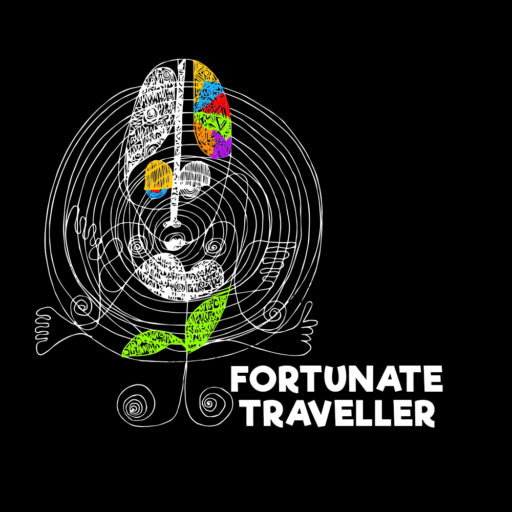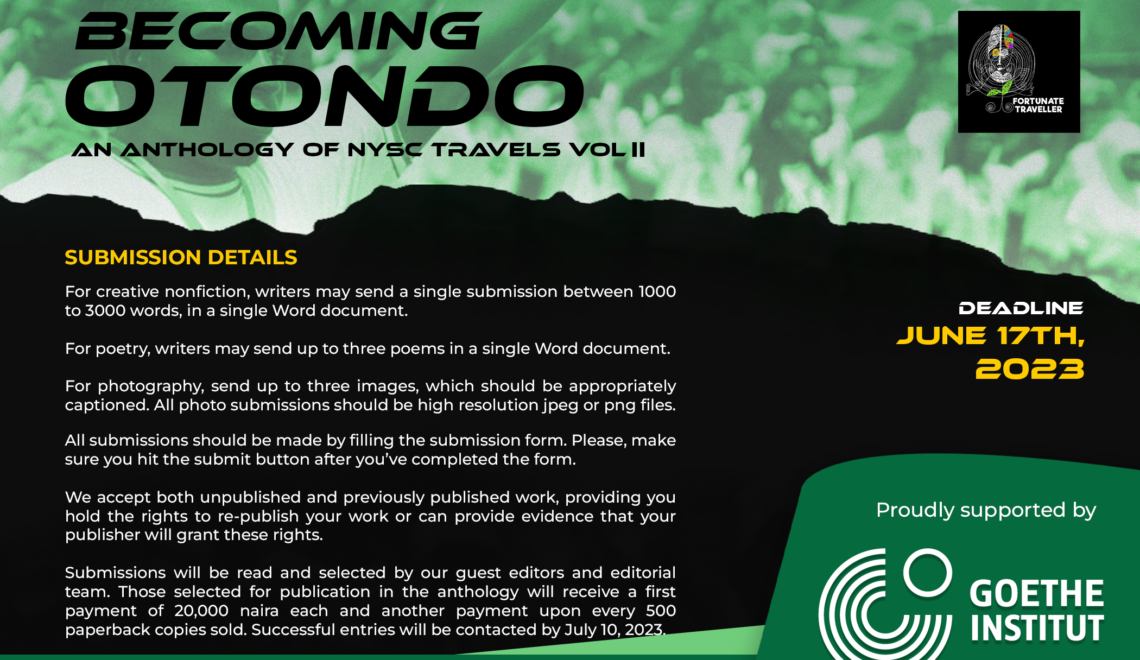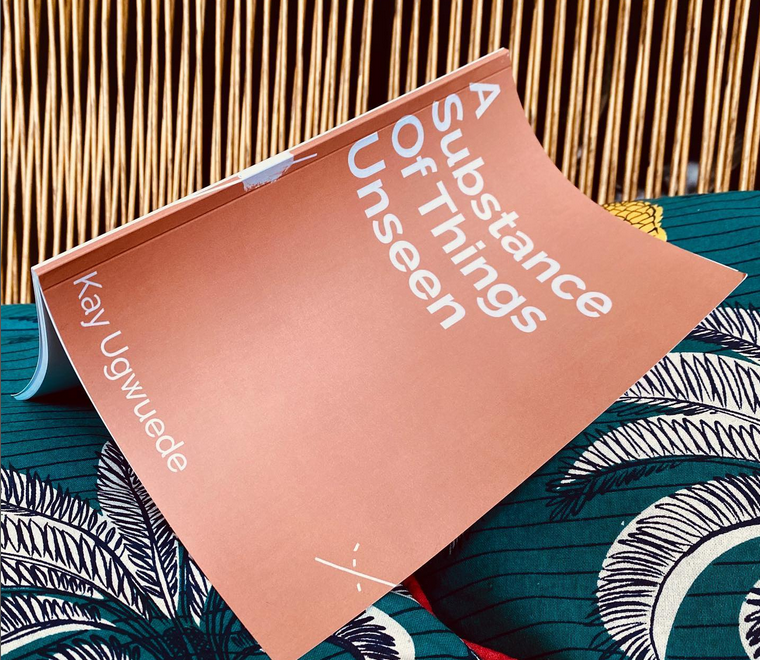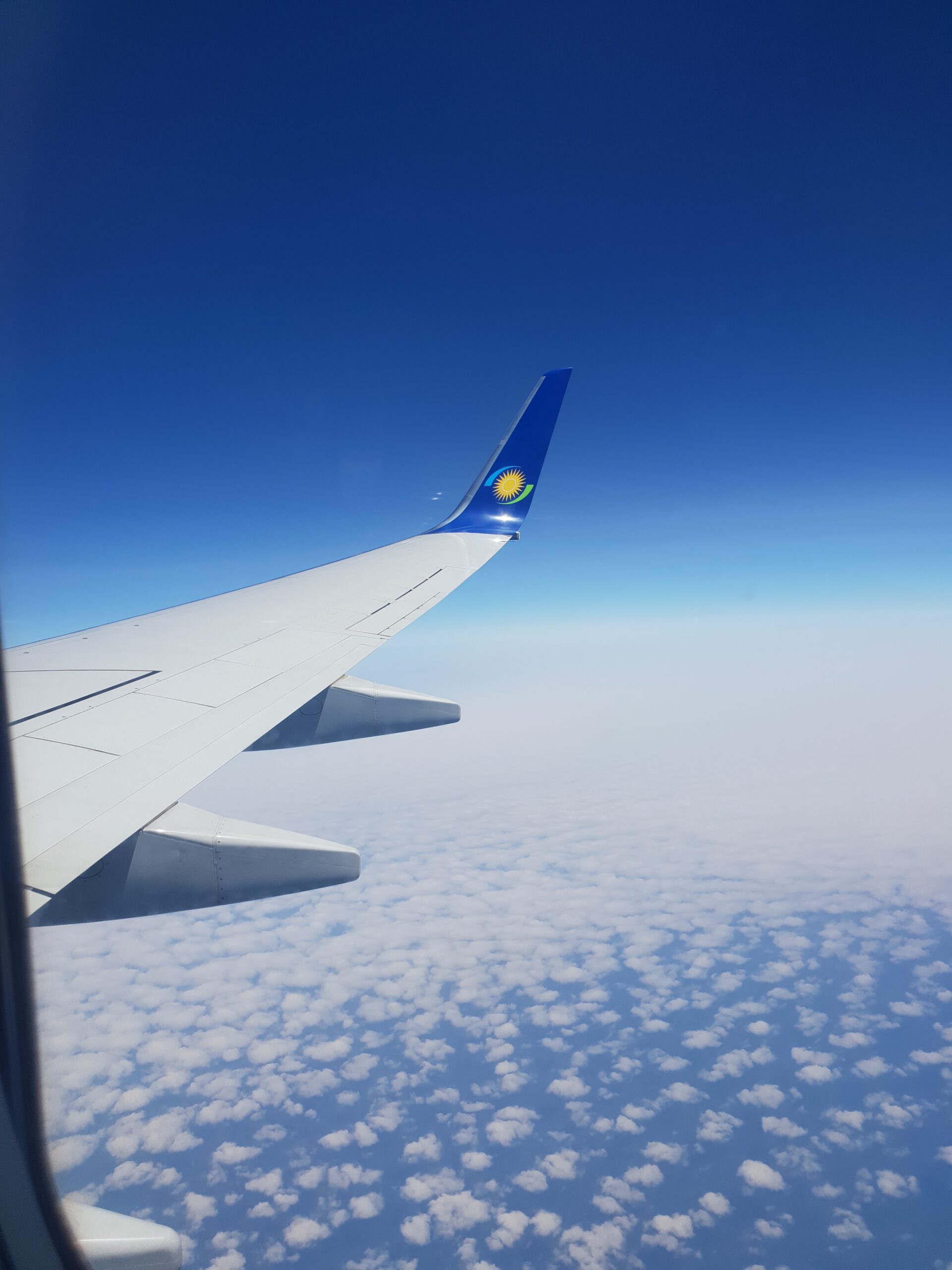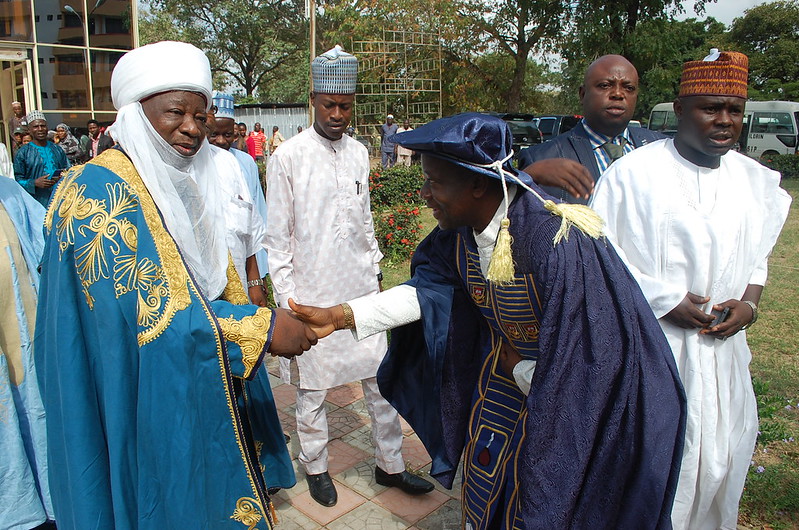
- Title: A Life in Transit
- Author: Kemi Falodun
- Publisher: Invisible Borders Trans-African Project
- Number of pages: 27
- Year of publication: 2017
- Category: Travel/Nonfiction
A Life in Transit by Kemi Falodun is a chapbook of travel essay resulting from the 34-day journey she embarked on across Nigeria in 2016 under the aegis of Invisible Borders ─ an initiative aimed at ‘patching of numerous gaps and misconceptions posed by frontiers within the 54 countries of Africa’. It’s the second phase of the road trip begun the previous year themed ‘Borders within II: The Second Trans-Nigerian Road Trip’. This trip involved other Nigerian photographers and writers: Emeka Okereke, Amara Nicole Okolo, Kechi Nomu, Yinka Elujoba, James Bekenawei, Kenechukwu Nwatu, Nengi Nelson, Innocent Ekejiuba who charted Nigeria’s diversity across the many regions and ethnic formations of the country.
In A Life in Transit, Falodun’s chapbook interrogates the themes of identity, displacement, war, religious intolerance, amongst others. The remarkable thing about this is that she internalised these herself and becomes a prism through which they become clearer. Her writing captures Nigeria’s social conditions in a realistic model.
The chapbook is a 27-page narrative written from a first-person perspective like many travel accounts. It is a narrative that sheds more light on Nigeria’s demography ─ and nudges us closer to everyday people and places in the cities Falodun (and her co-travellers) visited: Kaduna, Ilorin, Unwana, Minna, Nsukka, Sokoto, Jos, and Bayelsa. In her truth-telling story, some questions emerge: can there be a post-colonial text centered on Nigeria without the theme of religion at its periphery? How can one understand selflessness, is it when an individual prays for every living soul in the four cardinal points but neglects her own wellbeing? Falodun’s A Life in Transit evokes answers to these probing as a testament to the discussion on the pragmatic of religion and its material role in post-colonial Nigeria. In her encounter with a certain Prophetess Gbadamosi, who prays for interested devotees on the hill Falodun visited in Ibadan, she shows how faith is a staple for many Nigerians passing the encounter through her own childhood memory.
The travellers’ experience in Ilorin, a city in the north-central of Nigeria, gives a panoramic view of the complex issues of religious and ethnic intolerance in Nigeria. Falodun’s depiction of the unfriendly relationship between the Fulanis and Yorubas over the traditional leadership is not far-fetched. She unveils the importance of history, and its transactions in the contemporary state. She describes how history haunts the people of Ilorin:
One of our considerations in Ilorin was history’s influence on modern life. During a meeting with some officials at the Ministry of Health one afternoon, they tell us about the internal tension the people of Ilorin lived with many years ago, and the current state of affairs. Everybody faces their own business. The rivalry between the Yorubas and the Fulanis remains though not as intense as it used to be. (p 11, 12)
In this same city, Falodun espouses religious pluralism in Nigerian society. She leads us to the truth-life story of an apparently Muslim woman who covertly goes to Mount Sobi (a place of solitude and prayer), where she practices her Christianity. To the woman, Ilorin is a Muslim dominated city that gives little or no room for other religions. As a result of this, she ‘is a Muslim at home and a Christian on the mountain’ (p. 12). This and Falodun’s experience in Ibadan ─ where Muslims and Traditionalists converge for deliverance at Ori Oke Agala ─ foregrounds the identity of Nigerians with respect to religious beliefs. In light of this, one could surmise that perhaps there are many Nigerians who live in a postcolonial quandary, dabbling in religious dualism. The takeout of this is that the writer’s advocation for tolerance and accepting individual religious differences as one way for peaceful coexistence and harmony in Nigeria.
There are other questions too. Would it be possible for a woman to make decisions or rule over men in this 21st century patriarchal Nigerian society? The essay answers: yes, it is possible. The writer tells that the village of Kunbwada in Niger state is ruled by Queen Hajiya Hadiza. We are made to understand that: ‘At her palace, we met men who told us how the village came by, how there were content with the system, that the last time a man tried to overthrow the Queen, he had died within a week.’ (p. 19). With this curiosity-piquing story, one expects the writer to ask some probing, somewhat stereotypical questions such as: is the Queen married? Does she have children? What is the general reaction of the menfolk towards her rulership? Yet we are left with no answers.
Falodun also gives us a glimpse of the unwholesome ecosystem in Nembe, a small community in Bayelsa; it is vexatious to observe the lack of basic social amenities in the community, in the face of their land and water being destroyed by oil spillage. A soiled paradise the region has become.
The chapbook’s drawback, however, is the failure to expand some details of crucial stories highlighted in it. An example is the tale of Queen Hajiya Hadiza, which leaves the reader with unanswered questions about her story. Nevertheless, the book is a realistic experience that almost every Nigerian can relate with. It testifies, in a clear and succinct approach, to the issues affecting the social and political development of the country ranging from ethnic differences and rivalry, to the Nigerian civil war. The key takeaway in this narrative essay is that every society is shaped by and lives with its own problems. A Life in Transit is not just a piece of travel writing; it is a documentation of facts about the past and the contemporary state of a country created by British imperialism under Lord Lugard and named Nigeria by Flora Shaw, his wife.
^In 2017, Invisible Borders did their second phase of Borders Within project. They published a set of chapbooks written by participants from the project. This review is the first part focusing on that series. Others shall be serialised in the coming weeks. You may also read previous reviews from the 2016 chapbooks on this website.
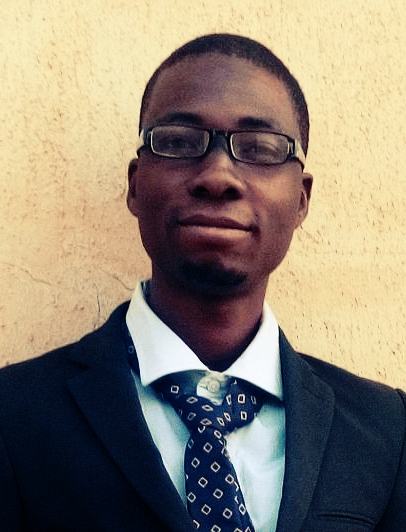
Nureni Ibrahim is a writer, haiku enthusiast, book reviewer, and contemporary critic. He lives and writes from somewhere in Nigeria. His writings have been featured in The Mamba Journal, Shamrock, Heron’s Nest, Under the Basho, and others. He uses literature to soak boredom.
Cover photo credit: Unilorin UNILORIN
